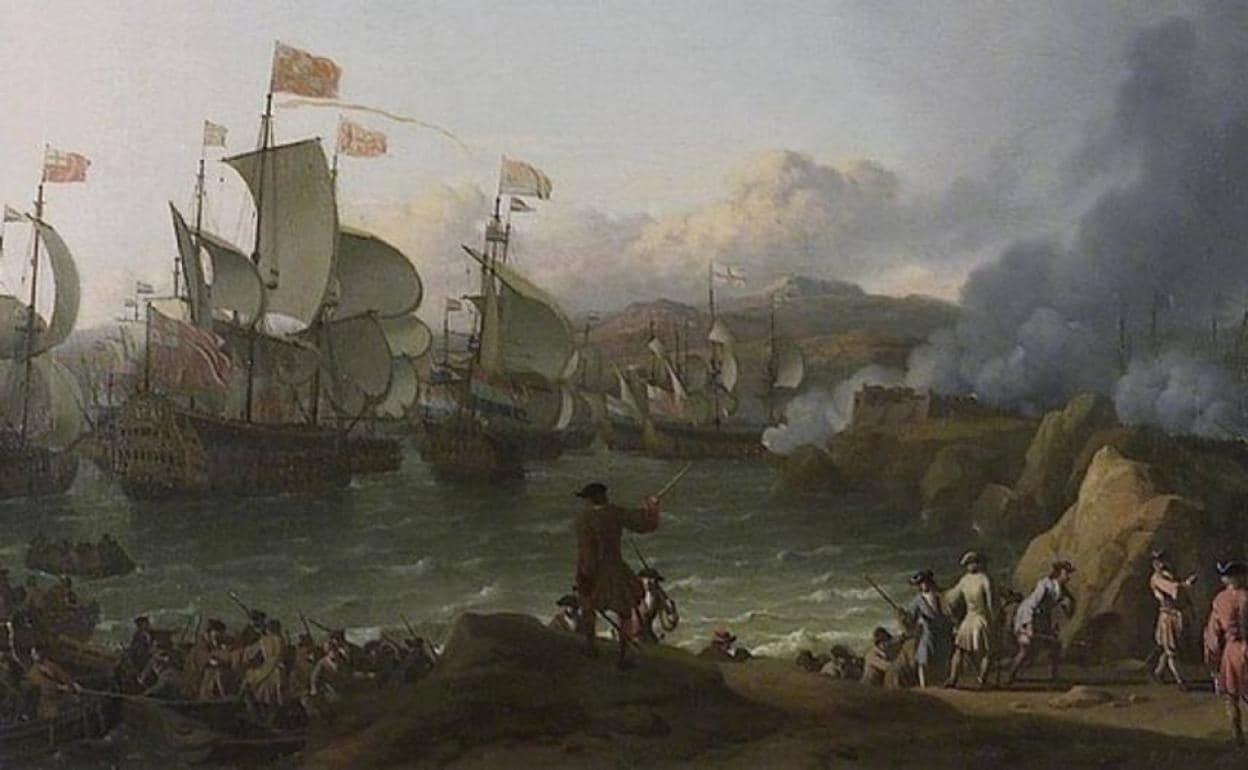26 August 1702: Anglo-Dutch forces land in Andalucía
WHAT HAPPENED TODAY? ·
Allied troops had hoped to conquer Cadiz in the War of Succession, but drunken looting led to the failure of the missionAlekk M. Saanders
Friday, 26 August 2022, 12:50
On 26 August 1702, 14,000 English and Dutch troops disembarked on the shores of Andalucía. They had been sailing in a fleet of 160 ships on a mission to conquer the port of Cadiz in the War of Spanish Succession, a conflict between the Franco-Spanish alliance and the Grand Alliance (Austria, England and the Netherlands) sparked by the coronation of Philip V of Bourbon as King of Spain.
The fleet of 50 warships (30 English, 20 Dutch) and 110 other vessels had been formed at the end of July. Admiral Rooke commanded the warships while 14,000 men (10,000 English and 4,000 Dutch) were under the Duke of Ormonde.
The planned, but later failed, attempt to conquer the port of Cadiz had aimed to establish a base for the control of the Mediterranean. Additionally, Cadiz was the great European centre of Spanish-American trade, and its port's capture would help the Allies sever Spain's links with its empire in the Americas.
The Allied fleet anchored off Cadiz on 23 August 1702, but it took the commanders three days to decide what to do next. Finally, the landing took place on a windy 26 August. The rough weather caused the loss of some 25 landing craft, and 20 men drowned.
Looting and plundering
The troops headed to El Puerto de Santa María, a town already famous for its wine and brandy, and most of the 'bodegas' at that time were owned by English and Dutch merchants. The Anglo-Dutch soldiers were apparently tempted by unguarded warehouses full of goods and alcohol. They lost control and fell to destroying, looting and plundering the town, including convents and churches.
A local English merchant described the situation: "Our fleet has left such a filthy stench among the Spaniards that a whole age will hardly blot it out."
Admiral Rooke himself reported: "The inhumane plundering of Port Saint Mary made a great noise here by sea and land, and will do so throughout Christendom."
The immediate effects of the looting were detrimental to the expedition. The troops' behaviour led the local population to shift their support to Philip V, instead of siding with the Allies, who wanted the throne for Archduke Charles of Austria. Thousands of civilian volunteers went to Cadiz to reinforce a garrison of some 500 poorly equipped men who were defending the city in extreme conditions. By the end of September, after losing 16 warships, Rooke decided to abandon Cadiz, and retreated to the Portuguese Algarve.
On the way back to England the Allies stopped in the Galician port of Vigo, knowing that by then the Fleet of the Indies, laden with treasure, had arrived there instead of Cadiz. The Battle of Vigo Bay was more successful for the Anglo-Dutch army than their attempt to take Cadiz.
